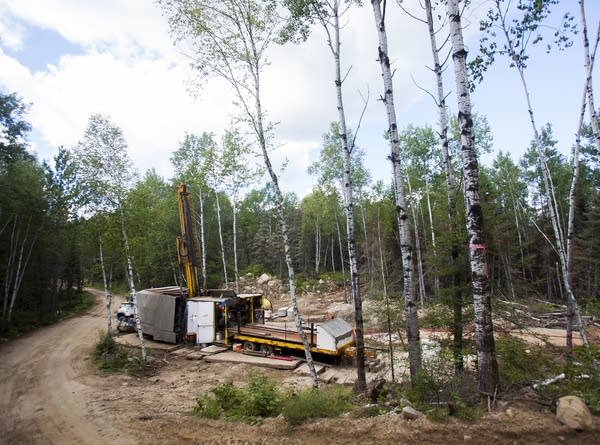Feds reverse course, keep Minnesota copper mine plan alive

An exploratory drill site operates outside Ely, Minn. in 2012.
Derek Montgimery for MPR 2012
Go Deeper.
Create an account or log in to save stories.
Like this?
Thanks for liking this story! We have added it to a list of your favorite stories.


